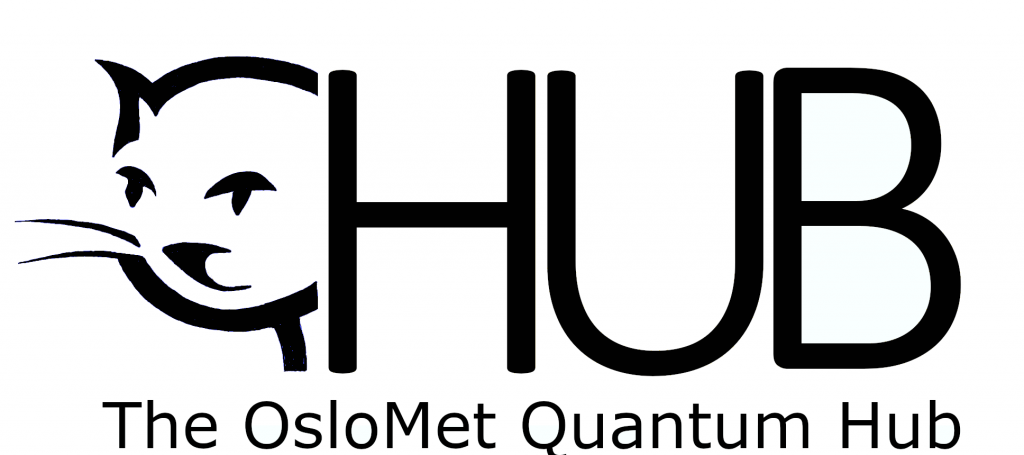Welcome to

In our hub, we want to promote quantum computing, quantum technology and quantum physics – to students, colleges and to the industry. And everyone else too.
We want to bring everyone with a quantum interest together.
In this regard we are proud to offer a course for the quantum curious this autumn. The course, which will be taught in Norwegian, is entitled Introduksjon til kvanteverda for nyfikne. Read more about it here.
We are hiring! Please see the announcement here. Deadline august 1st.
What is quantum computing?
Quantum computing is radically different from traditional, “classical” computing. There are certain problems and algorithms that are practically impossible to solve using classical computers, no matter how large or fast. Some of these problems can be solved much faster using quantum computers; this is referred to as as quantum supremacy.
One popular example is the factorization of large integer numbers; it is easy to multiply 17 and 53 to get 901, it is a lot harder to find out which numbers to multiply to get 901. Critical encryption algorithms rely on this fact. But a quantum computer with sufficiently many qubits could decipher such encryption in very little time.
Quantum computing is still in its infancy, but the development runs at an enormous pace. Few people would predict the importance of computers when seeing the the first machines such as ENIAC. These computers were large, expensive and difficult to use, but have in the last 80 years transformed society. Quantum computing, similarly, holds promise of transforming society by enabling us to solve problems that were previously insolvable.
Norway’s first quantum computer
In 2021, OsloMet acquired the first two Norwegian quantum computers. They are named “Hugin” and “Munin” after the ravens of Odin from Norse mythology. The names can be translated to “thought” and “mind”, respectively. The arrival was marked with a scientific summit on Quantum Computing and a launch event with the unveiling of “Hugin”, the very first quantum computer. Funded by the OsloMet AI Lab and the Department of Computer Science, the computers will be used for both teaching and research purposes.
The quantum computers have two and three qubits, respectively, and they will be actively used in the research on a practical application and limits of noisy intermediate-scale quantum computers.
Teaching, research and supervision
OsloMet offers a courses in quantum computing as part of the ACIT – Applied Computer and Information Technology program at the faculty of Technology, Art and Design.
We also supervise master projects on quantum computing as well as PhD projects.
Quantum technology will also be a relevant topic within our newly established Bachelor education within mathematical modeling.
Related activities
NordSTAR – Nordic Center for Sustainable and Trustworthy AI Research is one of five Excellent Academic Environments at OsloMet, and includes research on quantum computing for artificial intelligence.
DQUANT: A QuantERA project aiming to use the openness of NISQ computers as a resource. Sergiy Denysov is one of the Primary Investigators of this project.
Quantum Software Engineering is one of the research topics with our member and Simula researcher Shaukat Ali.
Becoming a member and accessing the computers
One of the main aims of the Quantum Hub at OsloMet is to promote quantum computing and foster collaboration in the quantum computing environment in Norway. We are eager to collaborate with partners in academia, research and industry. Do not hesitate to to contact us!